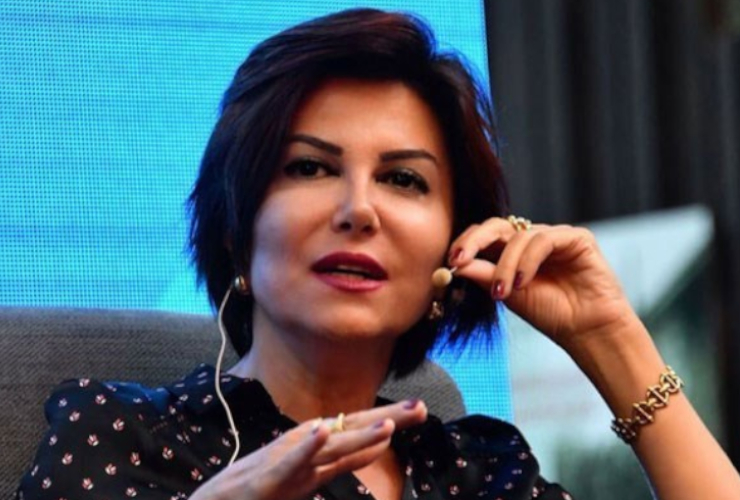The IPI global network and IPI’s Turkey National Committee call for the immediate release of Turkish journalist and author Sedef Kabaş, who was arrested over the weekend on charges of “insulting the president”.
On January 22, Kabaş was detained during a midnight police raid following critical comments she made about Turkish President Erdoğan on a program aired last week on TV broadcaster TELE1. The police raided Kabaş’s home at 2 am and took the journalist into custody for questioning.
Prosecutors had opened an investigation shortly after Kabaş made the remarks. In the programme, Kabaş quoted a Circassian proverb on air as follows: “A cow does not become a king as it ascends to a palace, but the palace becomes a barn.” Kabaş added, “There is a very famous proverb that says that a crowned head becomes wiser. But we see it is not true.”
Following the programme, a number of governmental officials, including Justice Minister Abdulhamit Gül, reacted on their social media accounts condemning Kabaş’s remarks. Following Minister Gül’s statement saying that these words go “beyond the limit”, “stem from hatred”, and “shall find a response in front of justice”, Kabaş was arrested on a charge of “insulting the president”.
With Kabaş’s arrest, the number of journalists in prison in Turkey rose to 38, according to IPI figures.
Prior to Kabaş’s arrest, Ebubekir Şahin, president of Turkey’s Radio and Television High Council (RTÜK), said that the RTÜK had also initiated a probe into TELE1 regarding Kabaş’s remarks. During the Council meeting held on January 24, RTÜK issued a 5 percent revenue fine against TELE1 due to the statements and issued a five-day broadcasting ban on the programme. After TELE1 journalist Uğur Dündar criticized RTÜK over the decision, the body issued another 3 percent revenue fine against the channel.
“Harmless news or undisturbing comments can be made in any country in the world. But in developed democracies, freedom of the press and expression includes the right to receive shocking and disturbing news and comments as well, as has been repeatedly recognized by the European Court of Human Rights. In such democracies, it is expected that public officials must demonstrate a higher tolerance for criticism”, IPI Turkey National Committee Chair Emre Kızılkaya said.
Kızılkaya said that there can be no democracy when the press is silenced. “In its 72 years of operation, IPI has recorded countless press freedom violations in Turkey where politicians tried to silence journalists. But journalists have not stayed silent, nor they have given up. All those politicians who endangered democracy for their own sake and position left, but the passion for journalism among new generations has remained infinite. The important thing is solidarity among journalists and readers’ appreciation of quality journalism without falling into the trap of cheap politics.”
IPI Deputy Director Scott Griffen condemned the arrest of Kabaş.
“Journalists, and indeed all citizens, have the right to criticize their elected officials, even if that criticism is shocking or disturbing to some. That is how democracies work”, he said. “As a signatory to the European Convention on Human Rights, Turkey is bound to respect these long-established principles. We call for the immediate release of Sedef Kabaş and the dropping of all charges against her, and we urge Turkey to abolish its law on insulting the president in line with international human rights standards.”
He added: “We are also disturbed by RTÜK’s decision to punish TELE1, which continues the council’s pattern of disproportionately targeting independent television broadcasters in Turkey. RTÜK, too, must respect the fundamental right of freedom of expression, and we call on RTÜK to rescind both the fine and the broadcast ban against TELE1.”
RTÜK also recently issued a 3 percent administrative revenue fine against Fox TV over news anchor Selçuk Tepeli’s comments critical of the government. According to RTÜK opposition member İlhan Taşçı, the total amount of administrative fines given in the January 24 meeting amounts to 6 million Turkish Liras (approx. 400,000 euros).
Last year in October, IPI led a joint press freedom mission to Turkey to meet officials and various institutions in Istanbul and Ankara. The mission delegation included representatives of a number of leading international press freedom and free expression organizations including IPI, Article 19, CPJ, ECPMF, HRW, OBCT, PEN International, RSF and SEEMO.
The mission delegation raised concerns about jailed journalists in Turkey; bans and fines by RTÜK and Press Advertising Agency (BİK) aimed at silencing critical media; and digital censorship.




